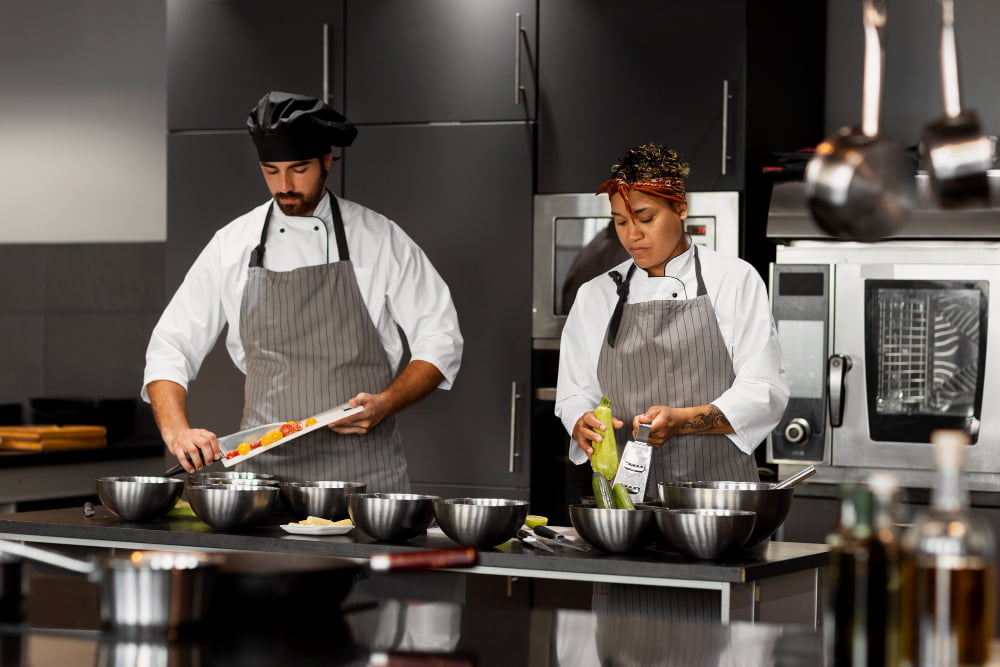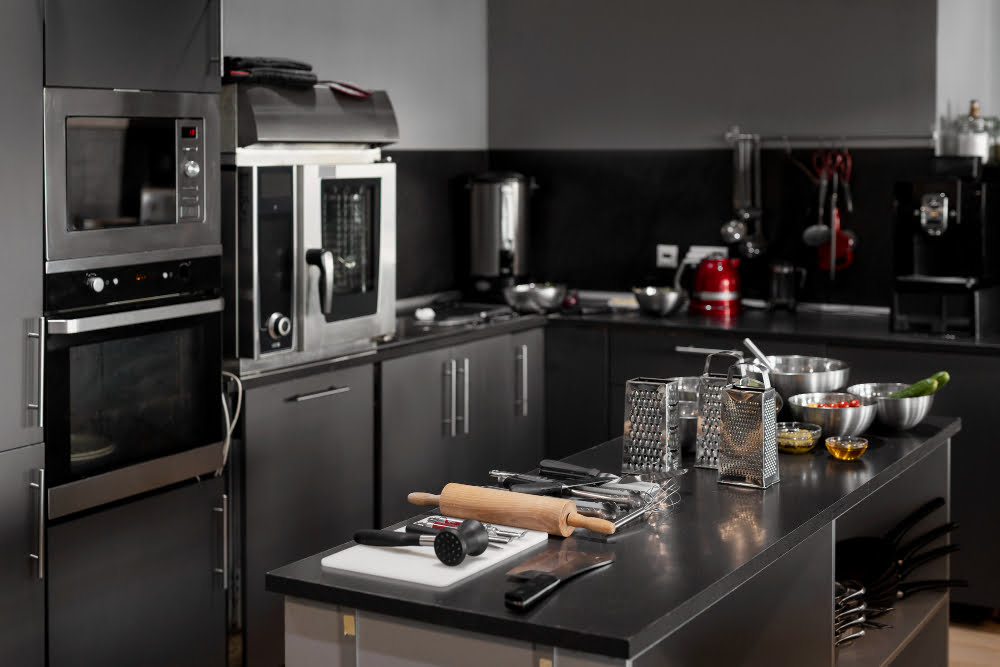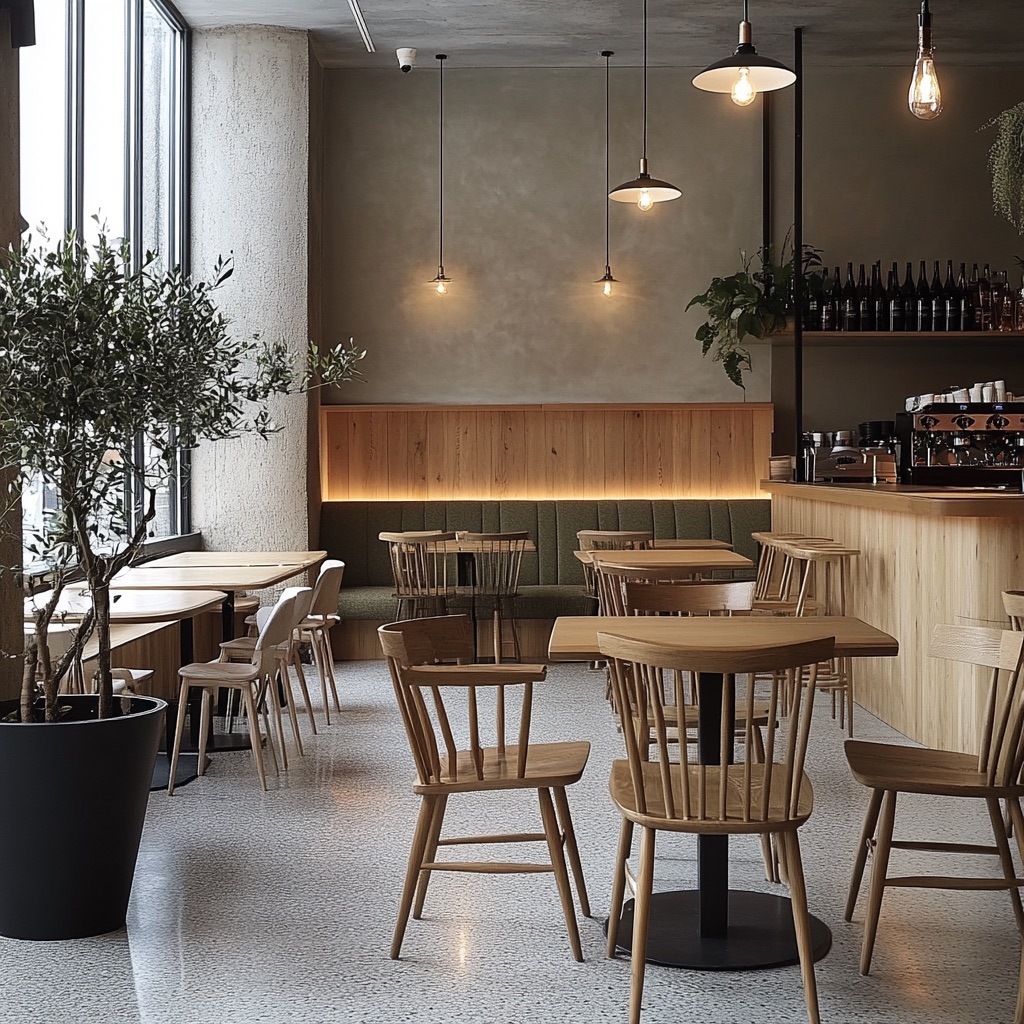Last updated on
Starting a food business requires more than just a passion for cooking; it demands the right tools and equipment to ensure efficiency, quality, and compliance with health standards. Whether you’re launching a bakery, a food truck, or a fine dining restaurant, investing in the right equipment from the outset can streamline operations and contribute to your success.
Here’s a comprehensive guide to essential tools every food business should consider.
Enhancing Safety and Professionalism

When considering the uniform for your kitchen staff, it’s crucial to prioritize both functionality and presentation. Equip your team with aprons from ChefWorks.com, ensuring they not only stay protected from spills and stains but also maintain a professional appearance that reflects your business’s commitment to hygiene and quality.
ChefWorks.com offers a range of stylish and durable aprons designed for comfort and practicality, essential for enhancing both the safety of your kitchen environment and the confidence of your staff.
Commercial Refrigeration Units
Maintaining food safety is non-negotiable in the food industry. Commercial refrigeration units like walk-in coolers, reach-in refrigerators, and freezers are indispensable. They keep perishable ingredients fresh and ensure compliance with health regulations. Invest in units that match your storage needs and consider energy efficiency to manage operational costs effectively.
Cooking Appliances

The backbone of any kitchen, cooking appliances must be chosen wisely based on your menu and production volume. Essential items include ranges, ovens (convection, deck, or combination), grills, and fryers. Opt for energy-efficient models with precise temperature controls to enhance cooking consistency and reduce utility expenses.
Food Preparation Tools
Efficient food preparation is key to timely service and consistent quality. Stock your kitchen with essential tools such as commercial-grade knives, cutting boards, mixers, blenders, and food processors. These tools not only expedite prep times but also ensure uniformity in cuts and blends, enhancing the overall presentation of your dishes.
Safety and Sanitation Equipment
Maintaining a clean and safe environment is crucial for both employees and customers. Invest in high-quality dishwashers, sinks (with adequate compartments for washing, rinsing, and sanitizing), and cleaning supplies. Additionally, provide personal protective equipment (PPE) such as gloves, aprons, and hairnets to uphold hygiene standards.
Storage Solutions
Proper storage extends the shelf life of ingredients and minimizes food waste. Invest in shelving units, storage containers, and label printers to organize inventory efficiently. Consider temperature-controlled storage for sensitive items like dairy, meats, and produce to prevent spoilage and ensure freshness.
Point-of-Sale (POS) System
Streamline transactions and track sales with a reliable POS system tailored to the food industry. Modern POS systems integrate inventory management, customer relationship management (CRM), and analytics, providing insights that can optimize menu offerings and operational efficiency. Choose a system that is user-friendly for staff and capable of handling peak service times seamlessly.
Ventilation and Exhaust Systems
Proper ventilation is essential for maintaining air quality and managing kitchen odors. Install commercial-grade ventilation hoods and exhaust systems to remove heat, grease, and smoke from the cooking area. Ensure compliance with local building codes and health regulations to create a comfortable and safe working environment for your team.
Beverage Equipment
If your business includes beverages, invest in quality beverage equipment such as coffee makers, espresso machines, soda dispensers, and ice machines. Ensure these appliances are easy to clean and maintain to uphold beverage quality and hygiene standards.
Display and Serving Equipment
For businesses focusing on presentation, display cases, serving platters, and buffet stations are essential. Choose equipment that complements your brand aesthetic and enhances the visual appeal of your offerings. Ensure these items are durable and easy to clean to maintain hygiene and showcase your products attractively.
Backup Power Supply
To prevent disruptions in service during power outages, consider investing in a backup power generator. This ensures that refrigeration units, cooking appliances, and POS systems remain operational, minimizing financial losses and maintaining customer satisfaction.
The Takeaway
Investing in the right tools and equipment is fundamental to the success of any food business. Whether you’re launching a new venture or expanding an existing one, prioritize quality, efficiency, and compliance with health and safety standards when selecting equipment. By doing so, you’ll not only enhance operational efficiency but also elevate the overall customer experience, setting your business up for long-term success in the competitive food industry.
Recap:



